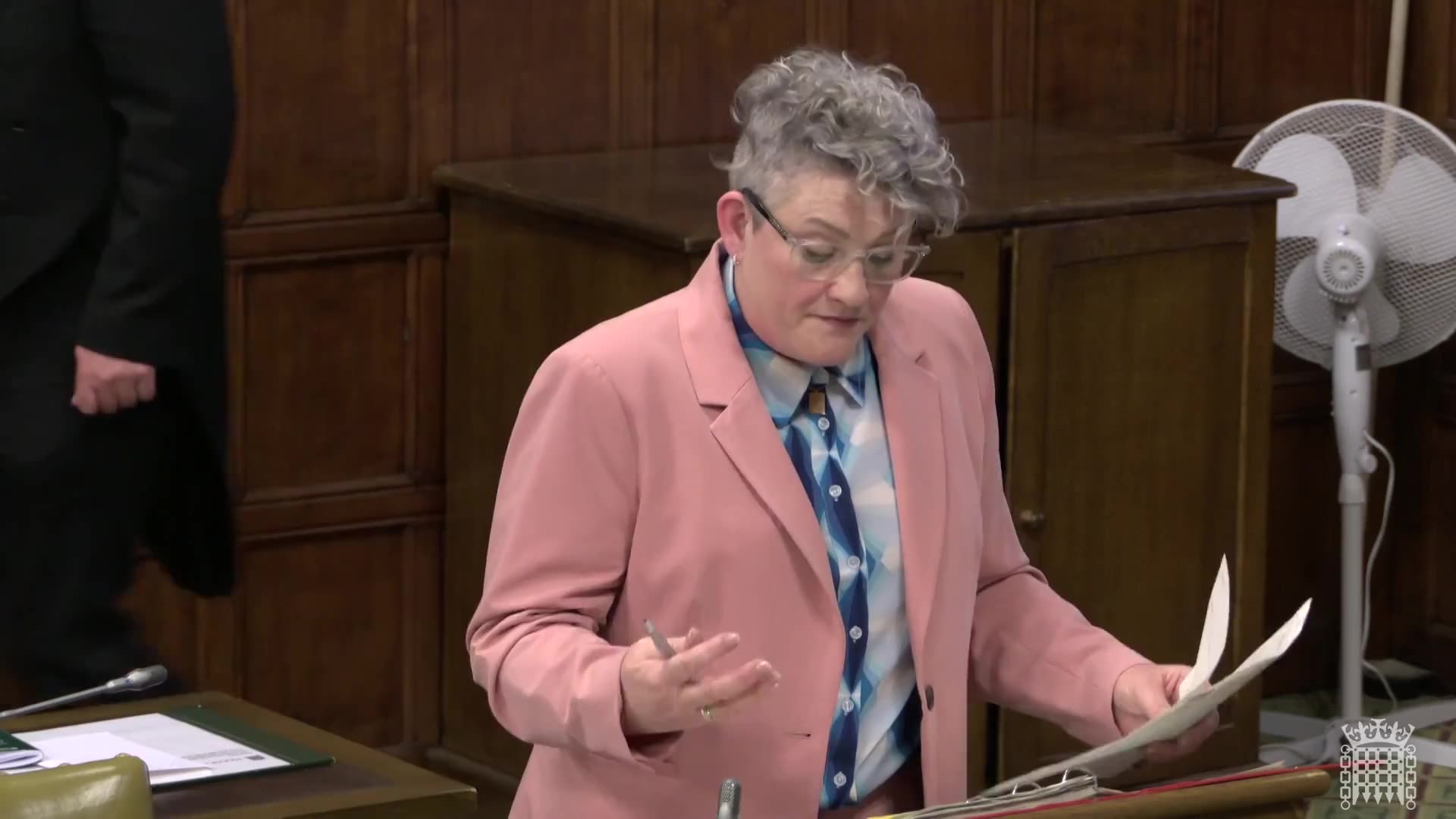Women's health
Sharing your experiences for a Parliamentary debate
27 February 2025

On 27 February, Helena Dollimore MP led a debate in Westminster Hall on women's health.
To inform it, she asked to hear your experiences and ideas.
Page contents:
- Video: sharing themes from the public's responses
- Links to watch the full debate or read the transcript
- The Government's response
- MP's thank you message
- Links to relevant parliamentary resources and support
- A debate explainer.
Video: sharing survey responses

The Government's response

Health Minister Ashley Dalton MP responded to the debate on behalf of the Government.
She described the Government's current policies and future ambitions related to the debate topic.
Watch or read her full speech where she covers a range of topics, including:
- The rollout of perinatal pelvic health services.
- The forthcoming response to the Women and Equalities Committee’s report: Women's reproductive health conditions.
- The NHS Pharmacy Contraception Service, which allows pharmacists to initiate or issue ongoing supplies of contraception prescribed by GPs and sexual health services.
- Updates to NICE guidelines (in development) used by Integrated Care boards when determining access to fertility treatment on the NHS.
- The delivery of two million more NHS appointments, including for breast cancer care and gynaecological conditions, seven months ahead of the Government’s intended target.
- Updates on the Women’s Health Strategy.
- The Elective Reform Plan and its implications for gynaecological services and treatment.
- Tools and interventions being developed by the NHS to upskill more GPs in menopause care.
- Provisions related to support for women experiencing menopause in the workplace in the Employment Rights Bill.
"I want to say a big thank you to all 824 of you who responded to the survey for my debate on women’s heath.
"A lot of you shared some very difficult experiences of accessing women’s health services, many of which echo what I have been hearing from my own constituents. I spoke about many of the points you raised, including:
- Having symptoms dismissed by healthcare professionals
- The waiting times for diagnosis and treatment
- The lack of research in women’s health
- The wider impact of health on employment and personal life
- Highlighting more positive experiences.
"Other MPs at the debate reflected on these points too. Do have a look at the transcript, video, and section on the government’s response. Thank you again for taking the time to contribute on this important topic."

Resources and support
House of Commons Library
Relevant research:
- Women's health
- Quality and safety of maternity care (England)
- Pelvic mesh and the Cumberlege review
- Treatment of lobular breast cancer
- Menopause
- IVF provision
Relevant Committee inquiries
- Women's reproductive health conditions: Women and Equalities Committee inquiry, 2024.
Help and support
- NHS Women's Health: information and support on health, wellbeing, conditions and screening.
What are Westminster Hall debates?
Westminster Hall debates enable backbench MPs from any party to raise an issue, and receive a response from the government.
They do not involve a vote on a particular action or decision.
Instead, the aim is to:
- raise awareness of an issue, often as part of a wider campaign
- seek to influence government policy
- put the views of backbench MPs, opposition parties, and the government on record.
The setting
Westminster Hall debates happen in the Grand Committee Room — the second chamber of the House of Commons.
Here, MPs sit in a horseshoe shape. This can help to encourage a constructive atmosphere.
Chairing the debate
Westminster Hall debates are chaired by an MP. The role of the Chair is to:
- ensure debates keep to the time allocated
- call on MPs to speak
- make sure MPs follow the rules of debate.
To mark the start of the debate the Chair says:
"Order, order"
Opening the debate
The MP leading the debate makes the first speech.
They will generally:
- outline their views on the issue
- present examples
- in some cases, call on the government to take action.
Backbench speeches
After the opening speech, other backbench MPs take turns to speak in the debate.
The main opposition parties
For longer debates, the main opposition parties then have a chance to respond.
An MP from the third largest party generally goes first, and is followed by an MP from the official Opposition.
They outline their party’s position on the issue.
The government's response
The Chair then calls the Minister to respond to the debate on behalf of the government.
The Minister will generally:
- respond to concerns raised by MPs
- explain the government's position and policies
- share relevant plans or ambitions for the future.
Closing the debate
If there is enough time, the MP who opened the debate can make final comments.
The debate is then concluded.
Engaging with debates
- You can contact your MP and ask them to attend a debate. Or you can ask them to lead their own debate on an issue you feel is important.
- For some debates, you may be asked to share your insights and experiences. This can help inform the MPs taking part in the debate. See the Chamber Engagement website for details.
- You can watch debates online, read the transcripts, or attend in person. Find out what's on by looking at the Parliamentary calendar.
Lisa, Ian and Charlotte helped inform previous debates on topics like the menopause and pensions advice:
For more on Westminster Hall debates, see How Parliament Works.

Photo credit: UK Parliament / Jessica Taylor
